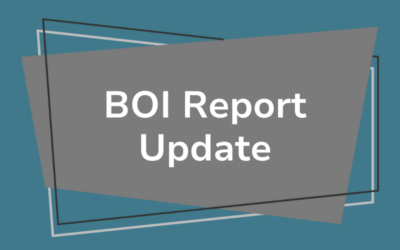How does a Limited Liability Company (LLC) owner withdraw money from their business? Whether these funds are for personal use or it is considered compensation from the LLC, how they may do that depends on three things:
- Whether the Limited Liability Company is a single-member LLC or multi-member LLC
- How the LLC is treated for tax purposes
- Whether the LLC member actively works in the business
As with all other legal and tax aspects of operating a business entity, it’s important to withdraw money from an LLC correctly. Getting guidance from an accounting professional will help ensure you follow the IRS’s rules. In the meantime, I’ll share some information to give you a basic understanding of how LLC members withdraw money from their business.
How to Pay Yourself as a Single-Member LLC
By default, an LLC with one owner (either an individual or spouses who file taxes jointly) is considered a disregarded entity for tax purposes. Therefore, it is taxed as a Sole Proprietorship.
An LLC’s business income, losses, credits, deductions, and other tax items are reported on the owner’s personal IRS Form 1040 (using Schedule C). Income taxes owed on business income are calculated according to the business owner’s individual tax rate. The LLC owner is also responsible for paying self-employment taxes (Social Security and Medicare) on their business income.
When an LLC is taxed using the default classification, its members are not considered company employees and may not receive wages or a salary. Rather than getting paid via payroll like other employees, they take “owner draws” from the LLC’s bank account to pay themselves. An owner’s draw refers to a payment from the LLC to the LLC owner — usually by writing out a check from the LLC to the LLC member or electronically transferring money from the LLC’s bank account to the LLC member’s personal bank account.
Be aware that regardless of how much money an LLC owner draws from their company’s profits in a year, they are still taxed on all of the profits. Owner’s draws are NOT tax deductible for the business.
Alternatively, a single-member LLC owner can choose to be taxed as an S Corporation or C Corporation. With an S Corporation or C Corporation tax classification, an LLC member who actively works for the LLC can be put on the payroll and paid as an employee. I’ll cover more on that later!
How to Pay Yourself as a Multi-Member LLC
When an LLC has more than one owner, it’s considered a multi-member LLC. By default, a multi-member LLC is treated as a General Partnership, with the business income and losses flowing through each LLC member’s personal tax returns using Schedule K-1, which identifies an individual member’s share of the profits or losses. The LLC does not pay income tax, but it does have to file an information return (IRS Form 1065). The LLC operating agreement should specify how profit and losses should be divided among the LLC members, just as a partnership agreement would include that information for partners in a General Partnership. Each member’s income tax burden would depend on their distribution of profits and their individual tax rate. Members who actively work in the business must also pay self-employment taxes on their portion of the business profits.
In a multi-member LLC, each member usually has a capital account from which they can take owner draws. Some LLCs set up guaranteed payments to their members by which the owners receive regularly occurring compensation. This helps ensure LLC members receive income even if the month or quarter wasn’t profitable for their company. Typically, such guaranteed payments are made by writing checks from the business to the individual LLC members or electronically transferring funds from the LLC to the members’ personal bank accounts.
When Can a Member Be Paid as an Employee?
If an LLC member actively participates in the management and operation of the business (performing more than just minor services), they may be put on the company payroll if the LLC elects for S Corporation or C Corporation tax classification. Electing S Corporation status involves submitting IRS Form 2253 to the IRS, and LLC owners must file IRS Form 8832 to request C Corporation status.
The LLC must pay its member employees a reasonable salary or wages for their services. What’s reasonable? Consider what a business would pay any employee with similar skills and experience performing similar work.
Learn more about reasonable compensation for S Corporations.
How Does a Tax Election Affect Taxes?
Naturally, choosing taxation as an S Corporation or C Corporation affects not only how LLC members pay themselves but also how income taxes are handled and which income tax rates apply. State and local income tax rules and rates vary, so make sure you check with your state and local tax agencies or consult a tax professional about what to expect and prepare for. Below is some information about how S Corporation and C Corporation election impacts an LLC and its members’ income taxes.
S Corporation Election
If an LLC is taxed as an S Corporation, it must file an S Corporation information tax return (IRS Form 1120-S), and its profits and losses flow through to its members’ individual tax returns. The S Corporation provides members with a W-2 for their employment income and a Schedule K-1 for reporting their share of the business profits. In an S Corporation, only the money paid to members as wages or salaries are subject to Social Security and Medicare taxes (i.e., FICA when associated with payroll). The remaining profits distributed to members are subject to income tax but not FICA. That makes the S Corporation election attractive to many small business owners because it can help reduce the individual’s personal tax burden compared to the default LLC tax treatment method, whereby all business profits are subject to Social Security and Medicare taxes.
C Corporation Election
Another tax option for LLCs is the C Corporation tax election. It, too, can reduce a business owner’s personal tax liability. Unlike an LLC that opts for default or S Corporation tax treatment, an LLC that chooses C Corporation tax status must file a corporate tax return (IRS Form 1120) and pay income taxes according to the corporate tax rate. LLC members pay income tax individually only on the money they receive through payroll and from profit distributions (reported on IRS Form 1040 from the W2 and 1099-DIV from the C Corporation). Only their wages or salaries are subject to FICA tax (half of which is deducted from their paychecks while the business pays the other half). If the corporate tax rate is lower than the members’ individual tax rates, the C Corporation tax election might result in additional tax savings. Keep in mind, though, that a C Corporation’s profit distributions to members undergo something known as “double taxation.” That income is taxed at the corporate level first and then again at the individual level. Moreover, profits distributed to members are not tax deductible for the business.
How to Learn More
Will it be advantageous to elect S Corporation or C Corporation status and put yourself on the company payroll? Does the work you do for your LLC qualify you to be considered an employee? Is your LLC profitable enough to pay yourself a reasonable salary or wages?
Those are just a few of the questions you may be thinking about — and I suspect you have many more! To ensure you fully understand your options and how they will impact your business and personal finances, talk with a licensed accountant or tax advisor for insight and guidance.





